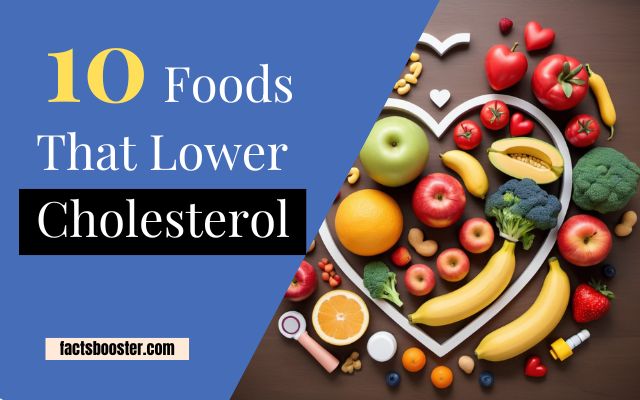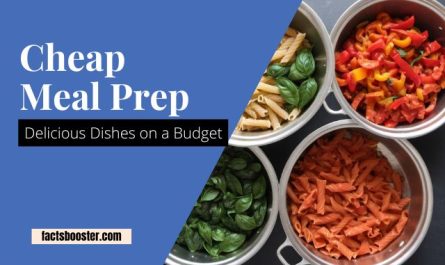Maintaining low cholesterol levels emerged as a critical component for heart health, with diet playing a pivotal role in this process. You will discover that introducing certain foods into your daily routine can naturally steer cholesterol levels towards the healthy range, fostering overall well-being. This exploration sheds light on how soluble fiber, healthy fats, and antioxidants contribute to a heart-healthy diet.
Key Takeaways:
- Diet is instrumental in managing cholesterol levels.
- Cholesterol-lowering foods include those rich in soluble fiber, omega-3 fatty acids, and antioxidants.
- Incorporating a variety of these foods into your diet can significantly reduce cholesterol levels.
What is Cholesterol
Cholesterol, a waxy substance found in your blood, has vital roles but requires balance. LDL (low-density lipoprotein) cholesterol, often labeled ‘bad’, can build up on artery walls, leading to heart disease and stroke risks.
On the flip side, HDL (high-density lipoprotein) cholesterol, the ‘good’ type, aids in removing LDL from the bloodstream. Managing cholesterol levels became essential not just for heart health but also to prevent compounding health issues related to high LDL cholesterol. (1, 2)
High cholesterol silently damages arteries and poses significant risks without obvious symptoms, emphasizing the critical need for cholesterol management to safeguard against serious cardiovascular diseases.

The Role of Diet in Managing Cholesterol
Diet has shown its power in the fight against high cholesterol. Choices made at the dining table can lead to significant shifts in levels of LDL cholesterol and triglycerides. Foods rich in soluble fiber, antioxidants, and healthy fats have proven particularly beneficial.
These nutrients team up to tackle cholesterol by enhancing HDL cholesterol while minimizing the harmful LDL type. Smart dietary decisions serve as frontline warriors in the prevention and management of cholesterol-related health issues. (3)
Read more:
Foods That Lower Cholesterol
Diving into the realm of cholesterol-lowering superfoods, selected for their abundance in soluble fiber, omega-3 fatty acids, and antioxidants, each plays a pivotal role in fostering a heart-healthy diet. These nutrients have been recognized for their contribution towards reducing LDL cholesterol and boosting HDL cholesterol, laying the foundation for overall cardiovascular wellness.
1. Fish
Omega-3 fatty acids in fish have been shown to lower triglycerides, thus enhancing heart health significantly. For those aiming to reduce cholesterol, incorporating salmon, mackerel, and sardines into meals proves beneficial.
Health experts often advise consuming these varieties twice a week, with servings of around 3.5 ounces each, to achieve optimal cardiovascular benefits. This dietary adjustment has emerged as a pivotal step toward a heart-healthy lifestyle.
2. Olive Oil
Olive oil, rich in monounsaturated fats, has been shown to lower LDL cholesterol without impacting the beneficial HDL cholesterol. This makes it a heart-healthy choice for those looking to manage cholesterol levels effectively.
Introducing olive oil into your diet can be as simple as using it for salad dressings or replacing butter in cooking. However, it’s important to use it in moderation due to its high-calorie content, ensuring it benefits your diet without contributing to weight gain.
3. Vegetables
Vegetables containing high levels of soluble fiber have been shown to aid in lowering cholesterol levels. By incorporating a spectrum of colorful vegetables into your diet, you not only receive the fiber needed for cholesterol management but also harness the power of antioxidants.
These crucial nutrients play a pivotal role in preventing the oxidation of cholesterol, ensuring your heart health remains a top priority in your nutritional choices.
4. Garlic
Studies have supported garlic’s role in cholesterol reduction. This potent bulb could lead to meaningful improvements in heart health by lowering LDL cholesterol, while its antioxidants contribute to arterial protection.
Incorporating garlic into your meals proves simple; add it to sauces, dressings, or roasted vegetables. However, it’s crucial to note that garlic might interact with certain medications, necessitating a discussion with a healthcare provider before making it a staple in your cholesterol-lowering diet.
5. Berries
Berries have earned acclaim for their rich antioxidant profile. These nutrients have demonstrated effectiveness in reducing cholesterol levels, boosting heart health significantly. Including a diverse array of berries, such as strawberries, blueberries, and raspberries, in your diet introduces a powerful blend of heart-healthy antioxidants and soluble fiber.
This combination is key for managing LDL cholesterol and enhancing HDL cholesterol, making berries an essential component of a heart-healthy diet.
6. Legume
Legumes have earned their place in a heart-healthy diet. They are abounding in soluble fiber and plant-based protein, which have been shown to lower LDL cholesterol, a key to reducing heart disease risk.
By incorporating legumes into your meals, you can effortlessly replace higher fat meat proteins, benefitting your cardiovascular health significantly. Among these, beans, lentils, and peas stand out for their cholesterol-lowering capabilities.
Integrating a variety of these into your diet not only diversifies your nutrient intake but also champions your heart health.
7. Avocado
Avocados have earned their reputation as a powerhouse in the fight against high cholesterol. Their rich content of heart-healthy monounsaturated fats and dietary fiber has consistently shown promise. Studies have illuminated avocados’ capacity to lower levels of LDL cholesterol while nurturing HDL cholesterol’s presence in your system.
For a seamless integration into your diet, consider layering slices on salads or sandwiches. This not only introduces a creamy texture but also replaces less healthy fats, steering you towards a more balanced, heart-conscious lifestyle.
8. Green Tea
Green tea, known for its catechins, has shown promising effects on LDL cholesterol levels. These antioxidants play a crucial role in enhancing heart health. They have been studied for their potential to lower the bad cholesterol that contributes to heart disease.
By choosing green tea over sugary beverages, you are not only reducing your intake of unhealthy sugars but also benefiting from a heart-healthy drink. Beyond merely lowering cholesterol, green tea offers a variety of benefits to cardiovascular health, including improving arterial function and reducing inflammation.
Its inclusion in a diet focusing on heart health can significantly contribute to overall well-being.
9. Seeds
Seeds, specifically flaxseeds and chia seeds, boast high levels of omega-3 fatty acids and fiber. These nutrients have been recognized for their role in reducing LDL cholesterol and improving overall heart health. Studies have consistently supported these seeds’ effectiveness in cholesterol management.
You could easily add these seeds to yogurts, smoothies, or salads, making it simple to incorporate them into your daily diet. The inclusion of these small but mighty seeds could have a significant impact on your heart-healthy diet.
10. Whole Grains
Whole grains, inclusive of oats and barley, offer a powerful tool for your heart-healthy diet, thanks to beta-glucan. This soluble fiber has proven efficacy in reducing cholesterol levels. By integrating these grains into daily meals, you do more than just lower cholesterol; you embark on a journey towards comprehensive well-being.
Eschewing refined grains in favor of their whole counterparts not only aligns with recommendations for a heart-healthy diet but also enhances overall health. The shift towards whole grains represents a simple, yet profound, step you can take today to safeguard your heart’s health for tomorrow.
The Risk of High Cholesterol
High cholesterol silently paves the way for heart disease and stroke, two leading causes of death. You might not feel its presence until it results in a major health event. This makes regular cholesterol screenings vital.
They have become a cornerstone in preventing cardiovascular diseases. By knowing your numbers, you can take decisive actions towards maintaining a heart-healthy lifestyle.
Adjustments to your diet have shown significant impacts on lowering LDL cholesterol and raising HDL cholesterol. Incorporating foods rich in soluble fiber, healthy fats, and antioxidants plays a crucial role. It’s not just about avoiding the bad but adding the good that can make all the difference in your cholesterol levels.
Conclusion
Managing cholesterol levels significantly hinges on diet. Incorporating a variety of foods rich in soluble fiber, healthy fats, and omega-3 fatty acids will markedly lower cholesterol. You’ve learned how crucial these foods are for a heart-healthy diet. Now, it’s time to take proactive steps toward embracing these changes for better health.


